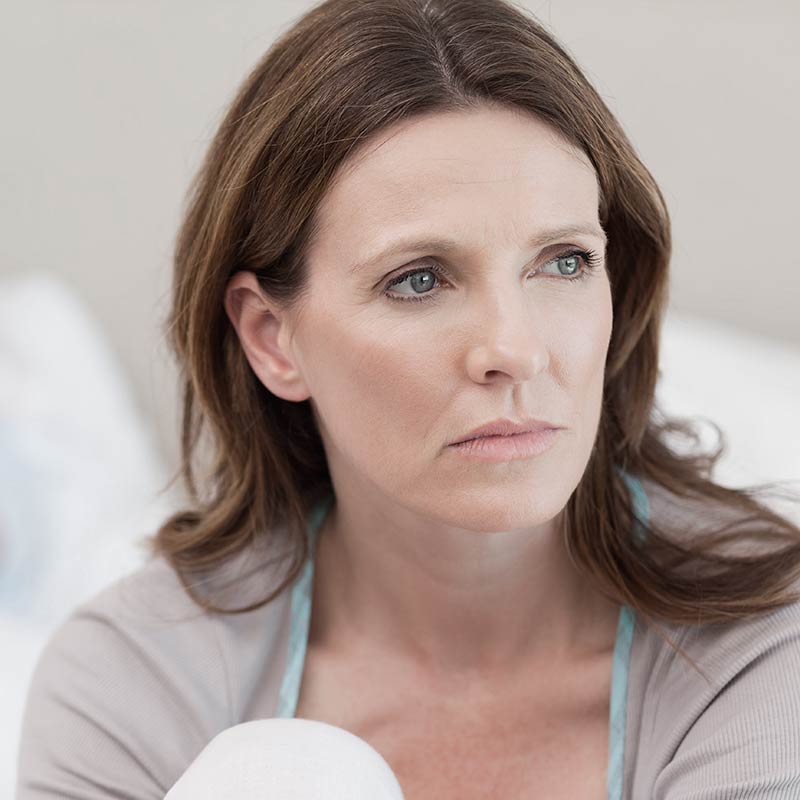Menopause & Vaginal Dryness
Genitourinary Syndrome of Menopause along with associated symptoms such as vaginal dryness are chronic disorders that are very unlikely to improve over time without menopausal women first receiving safe and effective treatment.
Take a moment to learn more about GSM symptoms, our individualized approach to treating vaginal dryness through bioidentical hormone replacement therapy, and how you can take the first step towards improving your overall health and well-being.

Dr. Jennifer Krup, ABHRT Certified Physician
Dr. Jennifer Krup, ABHRT Certified Physician
Genitourinary Syndrome of Menopause
Genital Symptoms
Reduced estrogen levels have been shown to decrease collagen, hyaluronic acid, and elastin which contributes to:
Vaginal Dryness
Reductions in natural lubrication during years before and after menopause.
Vaginal Irritation
Generally caused by thinning of vaginal walls and increased vaginal dryness.
Vaginal Burning
Typical sensation felt by women suffering from vaginal dryness and irritation.
Sexual Symptoms
Genital symptoms often combine with sexual symptoms to create instances of overall impaired sexual function.
Sexual Arousal Difficulties
Associated with hormone imbalances, low libido, and GSM genital symptoms.
Painful Intercourse
Caused by genital symptoms such as vaginal atrophy, dryness, and irritation.
Lack of Sexual Desire
Often a result of imbalanced hormones, arousal difficulty, or painful intercourse.
Urinary Symptoms
Estrogen deficiencies have been shown to contribute to chronic lower urinary tract conditions such as:
Dysuria
Painful, slow, or difficult urination often associated with UTIs.
Urgency or Incontinence
Sudden urges to urinate, frequent urination, or involuntary leakage.
Urinary Tract Infections
Recurring UTIs which may result from vaginal dryness and irritation.
Vaginal Dryness & GSM: Who is Affected?
Increased Risk Factors for Vaginal Dryness
Cigarette Smoking
Lack of Vaginal Births
Lack of Sexual Activity

Treating Vaginal Dryness & GSM

The First Step is You

Expert BHRT Management

Hormone Optimization

Vaginal Dryness Compounds
MedQuest Compounding Pharmacy

How You Can Take the Next Step

